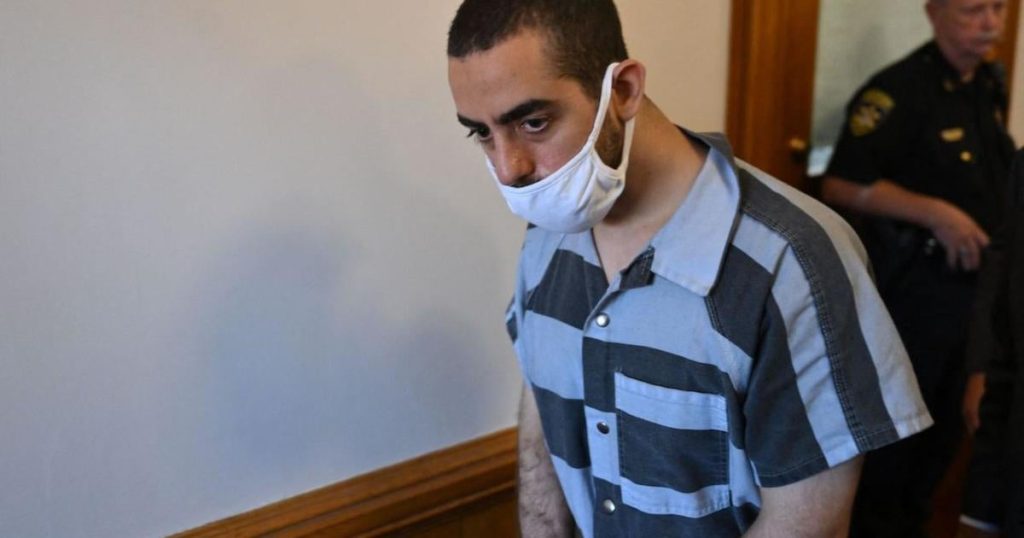A Vicious Attack on Freedom of Expression
The trial of Hadi Matar, accused of attacking renowned author Salman Rushdie, commenced in 2022, marking a grim chapter in the struggle for freedom of expression. The incident occurred during a public lecture at the Chautauqua Institution in New York, where Matar allegedly stabbed Rushdie multiple times. This brutal act sent shockwaves through literary circles and beyond, highlighting the vulnerabilities faced by public figures who challenge societal norms.
The Man Behind the Blade
Hadi Matar, a 24-year-old from New Jersey, is at the center of this trial. Prosecutors paint him as a man driven by a radical ideology, suggesting that his actions were premeditated and part of a larger mission. This narrative is supported by investigating authorities, who uncovered Matar’s apparent admiration for the Iranian regime and Ayatollah Khomeini, who had issued a fatwa against Rushdie in 1989. Matar’s motivations, according to prosecutors, were rooted in a desire to avenge perceived blasphemy, transforming a literary event into a potential act of terrorism.
A Trial with Global Implications
The trial’s significance extends beyond the courtroom, resonating with global concerns about free speech and religious extremism. Salman Rushdie’s "The Satanic Verses" has been a lightning rod for controversy since its publication in 1988. The book’s portrayal of Islamic figures sparked outrage in some quarters, leading to the fatwa and numerous threats against Rushdie. This attack serves as a stark reminder of the enduring tensions between artistic freedom and religious sensitivities.
The Legal Arena: Rights and Repercussions
As the trial unfolds, the legal team for Hadi Matar faces the daunting task of defending a client accused of a heinous act. While the prosecution emphasizes premeditation and ideological motivation, the defense may explore themes of mental state and radicalization influences. This legal battle not only seeks justice for Rushdie but also delves into broader societal issues, such as the influence of extremist ideologies and the challenges of balancing security with civil liberties.
Echoes of a Global Phenomenon
This incident is not an isolated event but part of a larger trend of violence against artists and intellectuals. From the Charlie Hebdo attacks to the murder of bloggers in Bangladesh, such incidents underscore the global nature of extremism. The attack on Rushdie serves as a poignant reminder of the risks faced by those who challenge orthodoxy, emphasizing the need for robust protections of free expression and the importance of open dialogue in confronting extremism.
Conclusion: A Call to Defend Freedom of Expression
In conclusion, the trial of Hadi Matar is a significant moment in the ongoing struggle for free expression. It highlights the vulnerabilities faced by public figures and the enduring challenges posed by extremism. As the legal proceedings continue, it is a reminder of the importance of fostering an environment where ideas can be freely expressed and debated without fear of violence.












